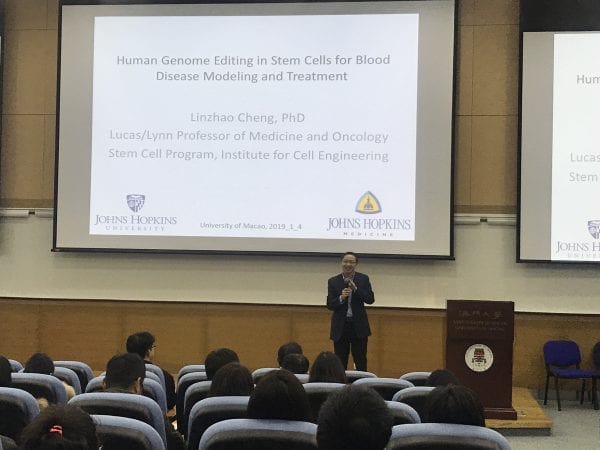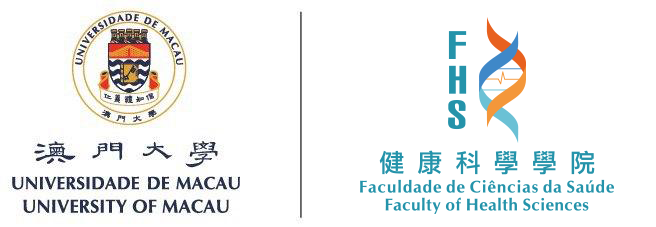
| Talk title | Human genome editing in stem cells for disease modeling and treatment |
| Speaker | Prof. Linzhao CHENG Professor Johns Hopkins University School of Medicine |
| Date & Time | 04 January 2019 (Fri) 14:30-15:30 |
| Venue | Room G078, E4 Building (University of Macau) |
| Abstract | Precise human genome engineering or editing only became a reality in the past decade. As compared to gene therapies using retroviral and lentiviral vectors that insert into the human genome uncontrollably, the precise genome editing allows us to substitute a single or few nucleotides or to insert a transgene into a safe harbor in the genome where its disruption has not biologically consequences. Although the concept of genome editing mediated by homologous recombination (HR) or homology-directed repair (HDR) is not new and has been used in mouse genome knock-out or knock-in for several decades, its extremely low efficiency in non-transformed human cells prevented its uses as a feasible technology for research and developing novel gene therapies. For many gene and cell strategies, it is highly desirable to target stem cells because they have greater proliferative and differentiation potential, but they are normally more refractory to genetic modification. The advent of engineered chimeric nucleases such as ZFNs and TALENs greatly enhanced our capability to conduct genome editing of non-transformed human cell types in the past decade. For example, we published the first paper to conduct genome targeting in human iPSCs as well as ESCs (Zou et al., 2009; 2011). Since 2013, the CRISPR-Cas9 technology that is simple to use and universal in applications totally revolutionized our practice in human genome editing for both research and developing novel gene therapies strategies. With adequately designed guide RNAs, the improved CRISPR-Cas9 nuclease is also highly specific in non-transformed cells in vitro and in vivo, such as human iPSCs (Smith et al., 2014; 2015). In my talk, I will discuss our experience in correcting point mutations involved in two types of blood diseases (Ye et al., 2014; Huang et al., 2015; Cai et al., 2018). I will discuss broadly the latest advances in genetic medicine that specific genomic DNA is also a target for gene therapies, and challenges ahead of us. The combined approach of human genome editing and stem cells will likely accelerate our progress is precision genetic medicine |

